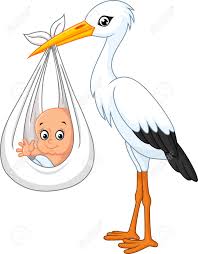“Knowing the answers will help you in school, Knowing how to question will help you in Life” – Warren Berger
WHY ? WHAT? WHEN ? HOW? seems to be endless and boring. Sometimes annoying too for a busy mom, dad or a care giver. According to a new study, average kids under the age of four ask 73 questions per day, and some over a grueling 14 hour stretch. This relentless interrogation about everything you can think of leaves one third of parents exhausted, and many dashing off to their cellphones to Google the correct answer. But quote unquote, “we”, the parents also feel happy and proud to attend and solve the tiny riddles of there curious mind. Witnessing there sparkling eyes when there curiosity is attended, discussed and concluded fills our heart with a different level of satisfaction.

Have you ever wondered why our children ask “WHY” so often??
Children are curious and they should be!! They want to learn and know everything around them, the question “why” helps them in making the sense of the world and the things happening around them. It also helps in building concepts, vocabulary, skills and understanding of the unknown. We “the parents” play a very important role in shaping this beautiful learning process. Our response for them is crucial and pivotal. Though, as per child physiologist the kids pour us with questions also to grab attention on them. What so ever, paying attention to them and their mind is the key for most of them.
I know, we the responsible grown ups lack time majorly. Sometimes, the clock doesn’t allow us even to talk. Answering a query or solving their puzzle is out of question. So, how about squeezing just 30 mins everyday before bed time and help them framing there thought. And trust me the story which you will see in their eyes will be more then that thirty minutes. The comfort and satisfaction will be all yours.
How to make them realize “You are Listening”?
- Encourage “Why”: Do this by responding in a supportive manner. Give an informative answer and, you can also attach another “why” with it , just to tickle there brain. (E.g. “Why does it rain?”…. (you can make the answer simple/ elaborate depending upon the age of your child). You can attach your “why” as ” Do you think the birds enjoy rain? or what they do when it rains? When I asked my 3.7 year this question..his answer was worth listening to. And, since that day I have seen his eyes looking for birds enjoying rain, and then drying themselves. It is very important to give them the opportunity to connect more and more with mother nature, as the she has all the answers within her.
- Ask a lots of “why” questions yourself, (e.g.. if your kid is helping you in kitchen..”Why do you think this soup which I am cooking needs more water? ) To show them learning is a lifelong process.
- Also your tone should be polite and welcoming that allows your child for a comfortable approach next time on wards.
- Read books to your child that contains many questions (e.g National Geographic First Big Book of Why?)

It’s ok , if they express sadness..
Until five years of age, I enjoyed answering my elder one’s question, with an answer ready in my head ( though I always pretended to think a little bit before answering). But, soon after the arrival of my little one, the question bank of my kindergartner started growing up. I felt, a lack of being able to answer his direct questions. As, framing of sentence with correct terminology, keeping them simple and precise was occasionally challenging. Today , he is eight and the journey of question answer session between us has been amazing. We have discussed many topics until now, Some questions have made me laugh and rolled (of course, not in front of him), some has bowled me over, some has made me cried, some made me give him a tight hug and assurance. And, few made me realize ” My child is growing”.
I am sure many of us are walking on this path with me, some are tying up their laces and some are being curious. And you all are welcome to share their journey. To start with mine…I will be sharing with you few of the most commonly asked questions starting by a toddler to a 5th grader elementary school.
Where does the babies comes from?
The most common question, often asked, and we all have answered it, as per our comfort and child’s age. When the question was aimed to me by my preschooler I suddenly recalled the stork of my baby shower cake with a baby wrapped in a cloth in its beak. He was happy for the answer and he asked innocently looking at the sky, Was I wearing my diaper , mommy??

What to Say at Each Age??
Toddlers (ages 2-3) — “They’re curious and they just asked you without thinking anything. Kids at this age may not even wait for an answer. So, you can simply tell them babies come from the hospital.
Preschoolers (ages 3-4) — Tell 4-year-old about an egg and a seed, but don’t try to explain sex, which they can’t grasp. Preschoolers who have seen seeds grow into plants will often accept this explanation.
School Age (ages 5-7) — If your elementary-age child is very mature, you can tell them, when God sees mom and dad happy and in love with each other. They give baby as a gift to them. And you can wait a few years until your child asks for more information. Find a visual book at the library or a bookstore that show how a baby grows in the womb.
Older kids (age 8 & older) — Child at this age know a lot these days, if you feel comfortable you can give them more information. You want to be your children’s resource for accurate information. They’ll go somewhere else for the facts of life if they don’t get them from you.
Why do people are homeless?
One of the toughest questions kids can ask — and one they often ask over and over — is “why people are homeless”. We see them so around us, that this question can come anytime.
And this is one fact of life that deserve a straightforward answer: “Homelessness is caused by poverty. Poverty is lack of resources. Sometimes it’s a lack of money and the person can’t pay for a place to live, but most of the time it’s a lack of friends and family that are able to help them when they need it most,” I was ready with answer as my elder one brought this topic on way back home from LA Downtown. A perfect time to discuss this sensitive topic as my chirpy little one was fast asleep. As expected after discussion he was sad about the fact of “homelessness”, and so, a warm hug was the perfect end as we reached our parkway. At this age, children are quite literal, so your discussions with them need to be simple and to the point. And to effectively explain such a complex subject:

Good work done, Garima mamma
LikeLike
Very informative for a new toddler Momma like me… Curiosity of kids need to be answered in the best way… N u explained it very nicely… Well done
LikeLike
Thankyou!! Yes ,it is always better to listen to them well…and solve their questions in the best possible way!!😊
LikeLike